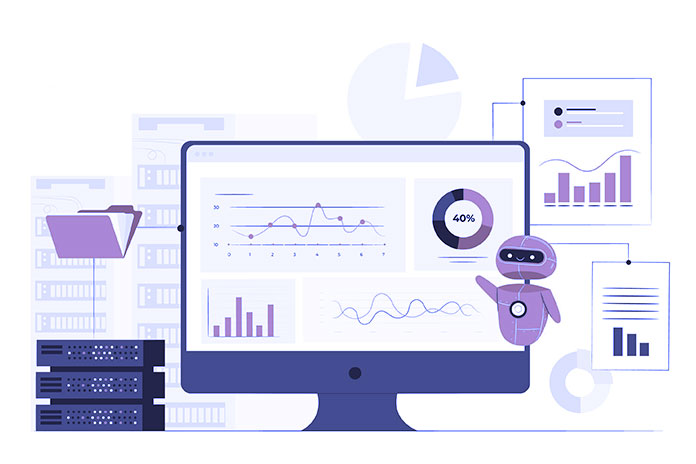“DMP”: an acronym that is now part of digital marketing buzzwords; I must admit that I had not yet considered its definition. During the 2015 E-commerce Show, I felt these three letters were on the lips of many e-merchants. So I decided to decipher what was hidden behind this acronym…
Definition Of A DMP: Data Management Platforms
Appearing in 2009, the first Data Management Platforms made collecting only Internet browsing data possible. Now, DMPs are more advanced, making it possible to collect, centralize, target, and use data relating to prospects and customers. A real digital transformation tool, the DMP, is currently used to optimize the targeting and performance of marketing campaigns.
However, few advertisers are starting to use this new tool. And for a good reason, it’s price. Between €50,000 and €75,000, or even more. The 2015 version customer database would therefore be similar to a DMP. But concretely, for this price, what services does a data management platform offer?
Also Read: Data Visualization: How Companies Are Optimizing Spend Management
A DMP, What For?
Why invest in a DMP? Companies wishing to leap the DMP should not think it is a magic tool! No, using a data management platform must be part of an overall digital transformation strategy.
First, consider the usefulness of a DMP. Generally, companies use this tool for three main reasons:
- Their customers have cross-channel journeys
- They face data silos
- They must react faster to improve the performance of their campaigns
If at least one of the three above points corresponds to your situation, you probably need a DMP. According to the Converteo agency, companies generally invest in a DMP to optimize and automate media buying (RTB or programmatic buying). But the services offered by a DMP are not limited to media optimization. And, fortunately, otherwise, it would be a bit light for the budget spent!
What Can A DMP Bring To Marketing?
- Link the different customer data. If you have two different data sources with a common field, like a customer ID or an email address, these sources can be stored by the DMP as belonging to the same person.
- Collect new data in real-time using tags (small pieces of Javascript code) that you must integrate on your website, in your emails, in your advertisements, or on your mobile applications.
- Help you define your customer segmentation
- Suggest new groups of people to target with your ad, so you can find prospects who are most similar to your current customers (called “look-alikes”)
- Generate statistical reports to let you know how your new DMP is working wonderfully (or not)
How To Choose Your DMP Supplier?
Setting up a DMP project is rather complex and requires upstream thinking about the selection criteria for your future partner. First, You should define your needs and priorities to compare different DMP vendors. Nevertheless, it seems to me that one criterion is essential. The DMP must be able to interconnect with your data sources and your customer knowledge activation channels (CRM, direct marketing tools, social networks, etc.) The DMP supplier market can be divided into three main families:
- “Connectors” such as Adobe or Oracle are DMP software publishers. They offer a subscription depending on the volume of data hosted on the platform.
- “Media buyers” such as Weborama or 1000Mercis often invoice their solutions as a percentage of the advertising budget managed by the DMP.
- “Audience qualifiers” – CampdeBases, Exelate – are in direct contact with DMP software publishers and are intermediaries between publishers and advertisers.
Advice Before Embarking On A DMP Project
As you can see, setting up a DMP is costly and must be thought through in advance with the marketing and legal teams. Indeed, respect for users’ privacy is essential in data collection. Advertisers must take compliance with legislation regarding the protection of personal data seriously. Also, remember to secure your DMP to avoid data leakage to other sites. Admittedly, the data is not personal but anonymous. However, it would be a shame to lose your pool of information which is worth a small ticket!
Also Read: Identity And Access Management Should Prevent Data Loss
